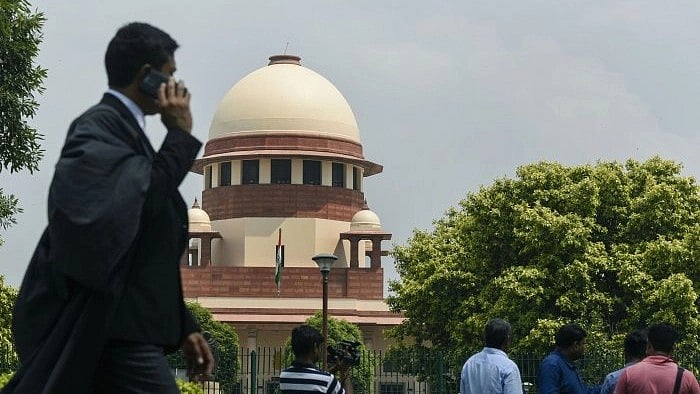
File photo of Supreme Court.
Credit: PTI Photo
New Delhi: The Supreme Court on Monday explained the power of the state government to decide the remission plea by the convicts by holding that it is the state where trial was conducted would exercise such a power.
It also said such a decision cannot be based on whims and fancies of the government only as it is mandatory to seek opinion of the presiding judge who convicted and sentenced the applicants.
In its judgement in Bilkis Bano case, a bench of Justices B V Nagarathna and Ujjal Bhuyan said if the intention of the Parliament was that irrespective of the court before which the trial and conviction had taken place, the order of remission can be considered by the government within whose territorial jurisdiction the offence has been committed or the offender is imprisoned, the same would have been indicated by the definition.
"On the contrary, the definition of appropriate government is otherwise. The intention of the Parliament is that the government of the State within which the offender was tried and sentenced, is the appropriate government to consider either under sub-section (1) of Section 432 of the CrPC or on an application made by the convict for remission of the sentence under sub-section (2) of Section 432 of the CrPC," the bench said.
The court pointed out the provision placed emphasis on the place of trial and sentence of the offender rather than the place or location where the crime was committed.
The bench also emphasised seeking opinion of presiding judge is also must on remission plea of sentence made by the convict.
"Having regard to the requirements which the Presiding Judge must comply with while stating his opinion to the appropriate government on an application for remission of sentence made by a convict, it cannot be held that the expression “may” in the said provision is not mandatory nor can it be left to the whims and fancies of the appropriate government either to seek or not to seek the opinion of the Presiding Judge or the Court before which the conviction had taken place," the bench said.
